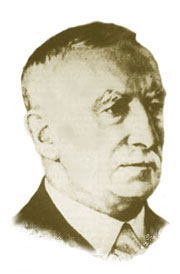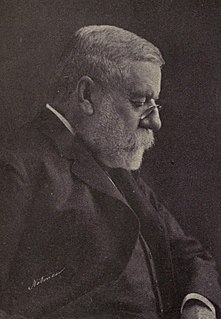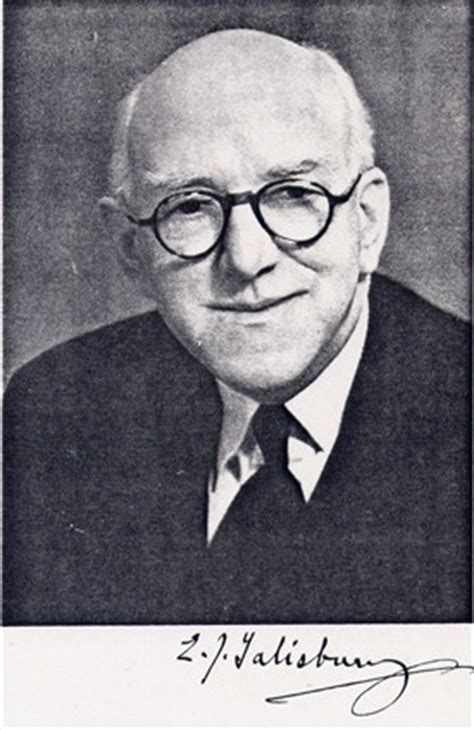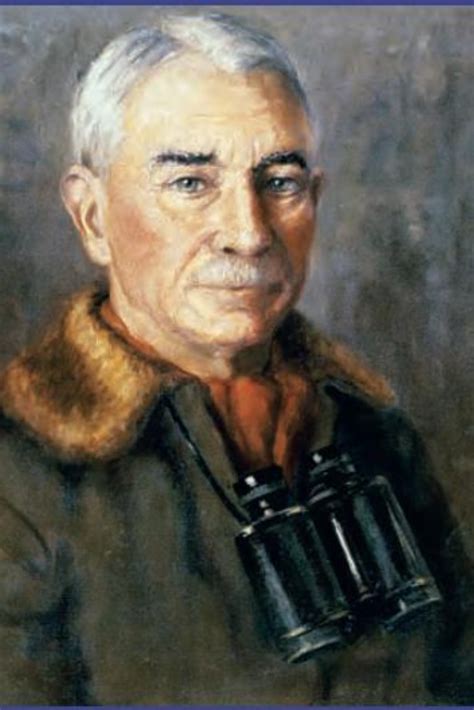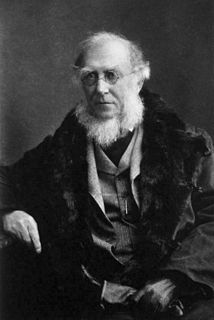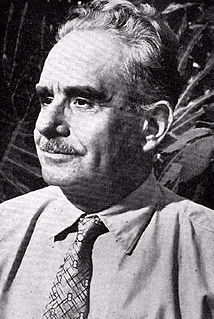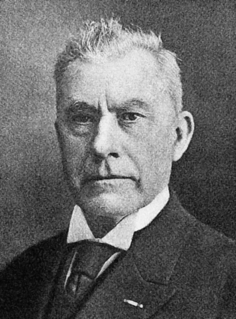A Quote by Herman Boerhaave
It were indeed to be wish'd that our art had been less ingenious, in contriving means destructive to mankind; we mean those instruments of war, which were unknown to the ancients, and have made such havoc among the moderns. But as men have always been bent on seeking each other's destruction by continual wars; and as force, when brought against us, can only be repelled by force; the chief support of war, must, after money, be now sought in chemistry.
Related Quotes
The Great War differed from all ancient wars in the immense power of the combatants and their fearful agencies of destruction, and from all modern wars in the utter ruthlessness with which it was fought... Europe and large parts of Asia and Africa became one vast battlefield on which after years of struggle not armies but nations broke and ran. When all was over, Torture and Cannibalism were the only two expedients that the civilized, scientific, Christian States had been able to deny themselves: and they were of doubtful utility.
No capitalists after any war were ever so well paid for money loaned to the nation that carried it on. No class of money-makers ever gained such prosperity by any other war, as our War for the Union brought to the money-getters of America. All this was due in great measure to the rank and file of the Union army. Now let no rich man haggle with a needy veteran of that war about his right to a pension!
We are organising our enemies into a formidable force, we are The US public has turned against the war, the Republicans and Democrats have turned against the war. And so when the American public turns against the war and the Congress turns against the war, it suggests that Americans feel we cannot win that war in those conditions. So the Iraqi Commission says, "Well, we can't win this war militarily, we need to reassess potential allies." There's Syria, there's Iran.
Wisdom born of experience should tell us that war is obsolete. There may have been a time when war served as a negative good by preventing the spread and growth of an evil force If we assume that life is worth living, if we assume that mankind has the right to survive, then we must find an alternative to war.
What is a war criminal? Was not war itself a crime against God and humanity, and, therefore, were not all those who sanctioned, engineered, and conducted wars, war criminals? War criminals are not confined to the Axis Powers alone. Roosevelt and Churchill are no less war criminals than Hitler and Mussolini. England, America and Russia have all of them got their hands dyed more or less red - not merely Germany and Japan.
WE MADE A MONSTER OF HITLER, A DEVIL. THAT IS WHY (THEREFORE) WE COULD NOT AFTER THE WAR SAY OTHERWISE. WE HAD PERSONALLY MOBILISED THE MASSES NEVERTHELESS AGAINST THE DEVIL. THUS WE WERE FORCED AFTER THE WAR, TO PLAY ALONG WITH THIS DEVILS' SCENARIO. WE COULD NOT POSSIBLY HAVE MADE OUR PEOPLE CLEAR (TO THEM) THAT THE WAR WAS ONLY AN ECONOMIC PREVENTATIVE MEASURE!
As I came through medical school, it was very exciting because physicians were reaching out to each other, between the U.S. and the Soviet Union, and sort of helping to build bridges among, you know, people, people who were not allowing our government to pit us against each other and to actually take us to the brink of nuclear war. And Physicians for Social Responsibility wound up getting a Peace Prize, a Nobel Peace Prize, which they shared with International Physicians for the Prevention of Nuclear War.
The Fourteenth Amendment, after the civil war, in principle brought former slaves into the category of persons, theoretically. But if you actually look, almost all the cases brought up for personal rights under the Fourteenth Amendment were by corporations. Freed slaves couldn't do it. In fact they were pretty much driven back into something like slavery by a north - south compact, that allowed former slave states to criminalize black life, which made a criminal force that was basically used as a forced labor force, up until the 1930s.
The Philippines and the U.S. have had a strong relationship with each other for a very long time now. We have a shared history. We have shared values, democracy, freedom, and we have been in all the wars together in modern history, the World War, Second World War, Cold War, Vietnam, Korea, now the war on terrorism.
Libertarians have always battled the age-old scourge of war. They understood that war brought death and destruction on a grand scale, disrupted family and economic life, and put more power in the hands of the ruling class - which might explain why the rulers did not always share the popular sentiment for peace. Free men and women, of course, have often had to defend their own societies against foreign threats; but throughout history, war has usually been the common enemy of peaceful, productive people on all sides of the conflict.
When you say that after World War I there was a pandemic that killed more people than the war itself, most will say: "Wait, are you kidding? I know World War I, but there was no World War 1.5, was there?" But people were traveling around after the war, and that meant the force of infection was much higher. And the problem is that the rate of travel back then was dramatically less than what we have nowadays.
The advertising men made it clear that there were two ways of looking at ideas in a war against fascism. Those of us who were working on the project believed ideas were to be fought for; the advertising men believed they were to be sold. The audience, those at home in wartime, were not 'citizens' or 'people.' They were 'customers.'

















